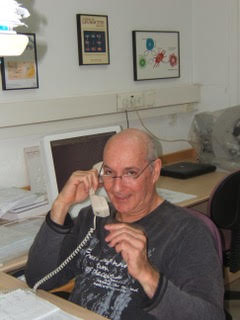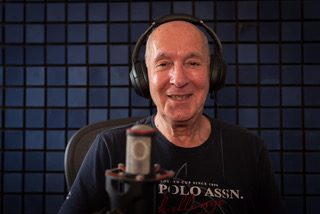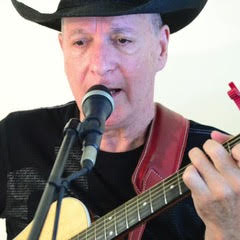Mother Told Teacher: 'The Child You Called a 'Burden' Is Now a Professor at Weizmann Institute'
As a young boy, Dov Tzipori battled polio and faced bullying and negativity from peers and teachers. Defying all odds, the boy once labeled as disabled and a poor student became a professor at the Weizmann Institute. Today, he is a personal coach advocating for everyone's potential to rise above challenges.
 In circle: Prof. Dov Tzipori (Photo: Yossi Aloni / Flash 90)
In circle: Prof. Dov Tzipori (Photo: Yossi Aloni / Flash 90)When speaking with Professor Dov Tzipori, one of the veteran scientists at the Weizmann Institute, several stereotypes are immediately dispelled. Despite his numerous achievements in scientific research, particularly in stem cell studies, Professor Tzipori is far from an ivory tower academic detached from his students and peers. The fact that he has published hundreds of scientific articles and authored a scientific book has never made him an unreachable professor consumed entirely by his research, without the time to understand those around him.
Every student who has passed through Professor Tzipori's lab over the years can attest to the special treatment and kindness he showed them. "I understand you," he often reassured students, "I have experienced all life's struggles over my 76 years and have tasted every challenge."

Respecting Every Person
The humanity and compassion that characterize Professor Tzipori are what led him, upon retirement, to make a significant life change and study personal coaching. "For years, I dreamed of this," he explains, "It began with my volunteering at the Eran hotline, helping people in severe psychological distress, day and night. Even in my scientific work, I always connected with the beating heart behind the research, and it was natural that when possible, I would study coaching as a profession."
Diligently applying himself, Professor Tzipori systematically acquired the coaching profession, receiving certification from Bar-Ilan University and the Entrepreneurship College, which he has been involved in ever since.
"Honestly, it’s more about the mission than the money," he admits, "In coaching, I encounter very tough cases, often of people facing workplace bullying or harassment. Such situations are more common than imagined, though many sweep them under the rug, unaware of the potential for change."
"My guiding principle is working with all sectors of society, not judging anyone. I even coach people with mental health issues and once helped a released prisoner adjust to new life. I do not exclude anyone; I strive to respect everyone."
Professor Tzipori emphasizes that he can appreciate every person, thanks to his own life experiences and the significant challenges he faced from contracting polio at age two.

Shortly before sharing his memories of those days, he wants to convey a crucial message: "In recent years, we have heard from those opposed to COVID-19 vaccines, spreading rumors against them and claiming they were not properly tested and could cause harm. While I don’t know if these opponents understand the damage they cause, one thing is clear—if the polio vaccines had been thoroughly checked in the 1950s and 1960s before being administered immediately, the world would now be full of severe polio patients and fatalities, just like how the polio vaccine was essential then, so are the COVID-19 vaccines in our time, and also the polio vaccines given today, despite certain places resisting them and limiting vaccination efforts. Parents who don’t vaccinate their children expose them to significant danger."
In Professor Tzipori's own case, when the disease was detected when he was an infant, his parents took him to the clinic, where they were informed that their son had been infected with the severe disease. He was isolated according to government directives in an infectious diseases hospital in Pardes Katz, separated from his family with no visitation. "I was isolated with many crying and screaming children, some younger than me," he describes. "Most of them passed away, and those who survived only returned to their parents much later, and even then, often deeply scarred."
A Little Child, A Big Challenge
Young Dov survived, but his life was never the same. "It wasn't just the physical disability that has accompanied me to this day, but also the mental state," he explains, "I was a child full of energy and joy, from a very happy home with parents who enveloped me with love. But once I fell ill, my parents fell into a kind of depression. I knew it was because of me and felt guilty from an early age, not to mention the abandonment anxiety from being separated from them with no contact. Despite this, I remained a very energetic and social child. The real sufferers were indeed my parents."
Do you remember your days of illness?
"I don’t remember the illness period; my memories begin around age four. During those years, I struggled to move around and crawled around the neighborhood due to the disability. This was my mode of mobility until about age eight, earning me the nickname 'dog', and hearing cruel insults like 'cripple', 'limper', 'grandpa', fed my already low self-esteem."
"School didn't know how to accept me," he adds, "especially since I was a poor student. I remember the third-grade teacher told my mom that I was 'terrible and a burden on the class'. This wasn’t true; I was actually a good child who never caused problems. But my disability made teachers see me as a child with no future. Years later, my mom saw that same teacher and couldn't stop herself from saying, 'My son whom you called a 'burden' is now a professor at the Weizmann Institute...'"

If you were such a poor student, how did you become a professor?
"The journey was indeed long," he chuckles. "In elementary school, I received no support from the staff, and even in high school, my chemistry teacher said I should be expelled for being 'worthless'. The only one who fought for me was the math teacher. Eventually, I graduated high school with zero self-confidence and poor grades. I don’t know how I got into university, but from that moment, everything changed, and I was on the right path. I earned a degree in Biology and continued to the Weizmann Institute.
"But even when I began working there, every morning I would enter the buildings feeling, 'If they see the fool entering the Institute, they’ll surely kick me out.' Now I know these feelings are called the 'imposter syndrome'. It’s a syndrome where people with low self-esteem fail to see their successes and skills, trapped in doubt and self-loathing. Later, when I employed students in university and heard their stories, I realized many of them had similar feelings, highlighting how common the imposter syndrome is among students. I don't like the term 'imposter' because these aren't 'faking' kids—they are genuinely hurt. Even one demoralizing teacher can impact a student forever."
What gave you the strength to fight and succeed?
"First and foremost, my dear parents supported me in their own ways. My father was kind and loving, showering me with affection even when life was tough. My mother, on the other hand, was anxious about my disability and frustrated by my academic struggles, pushing me to learn and invest. Thanks to her, I did pursue education.
"But above all, I think there was a deep inner strength within me saying, 'You can do it.' This resilience convinced me along the way that 'even though they call you a dog, you're not, and although teachers doubt you, they are wrong'. I think it was this inner strength that ultimately propelled me forward."
Believe in Your Students
Professor Tzipori notes that it was only after many years that he made the connection, understanding that the challenges of his childhood were instrumental in his journey to become a dedicated mentor to students and later a personal coach with deep empathy for others' feelings.
"I believe that the challenges I faced in childhood and adulthood made me very empathetic," he notes. "They turned me into someone compassionate, and because I found ways to cope with difficulties, to stay positive and joyful, I believe I can now help others gain these abilities too."
And when did you start truly valuing yourself?
He pauses for a moment, "Honestly, that still hasn't really happened," he finally admits, "Maybe it will someday."
He also has a message for parents and teachers: "Never write off your children or students—remember the many stories of students who failed in childhood but achieved great things later. Personally, I have a friend from high school who refused to take exams and wasn't interested in studying but eventually became the manager of the largest geriatric hospital in the country. Another friend was nearly expelled from school, yet went on to manage the medical and rehabilitation system at Sheba Hospital for years.
"It's not that every failure guarantees a success story, but it greatly depends on one's will and character, and the internal belief we give ourselves. There are people with every reason to pity themselves, yet they don’t crumble, and others who break despite their vast potential. What's important is that we as adults don't make definitive judgments about anyone's future. It's not our role to decide anyone's fate; we should simply believe they have a chance for growth and development. I was condemned since I was a mere child, and I will never do that to others."

